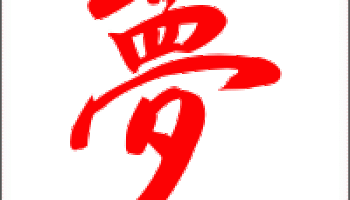LAST Thursday, US President Donald Trump signed a proclamation to raise tariffs for steel by 25% and for aluminium by 10%.
It sent shockwaves across the world not only because of the losses to metal exporters, but due to what it may signify – the start of a global trade war that will cause economic disruption and may damage, if not destroy, the multilateral trade system.
The United States, joined by Europe, has been the anchor of the global free trade system since the end of World War II. In practice, this rhetoric of free trade was hypocritical because the West continues to have very high protection of their agriculture sector, which cannot compete with those of many developing countries.
Moreover, the developed countries champion high intellectual property rights standards through an agreement in the World Trade Organisation (WTO), under which their companies create monopolies, set high prices and make excessive profits. This is against the free competition touted by free-trade advocates.
In manufacturing and metals, the developed countries have pressed the others to join them in cutting or removing tariffs and to expand trade, through negotiations in the WTO and its predecessor, the GATT (General Agreement on Tariffs and Trade).
They have argued that poorer countries can best grow richer by cutting their tariffs, thus benefiting consumers and forcing their producers to become more efficient.
Trump’s move upends the ideology of free trade. According to his America First philosophy, if cheaper imports displaced local steel and aluminium producers, these imports must be stopped because a country must make its own key products.
Since the US has been the flag-bearer of the free-trade religion, this has profound effects on other countries. If the leader has changed its mind and now believes in openly protecting its industries, so too can other countries. The basis for liberal trade is destroyed and the old rationale for protectionism is revived.
The WTO rules allow countries adversely affected by imports to take certain measures, but they have to prove that the producers of exporting countries unfairly receive subsidies or set lower prices for their exports. Or they can take “safeguard” measures of raising tariffs but only for a limited period to help affected local producers to adjust.
Trump however made use of a little-used national security clause (Section 232) in the US trade laws to justify his big jump in steel and aluminium tariffs. The clause allows the President to take trade action to defend security. The WTO also has a security exception in GATT Article XXI.
But what constitutes national security is not clearly spelt out either in the US or the WTO laws, and countries can abuse this clause.
The Trump administration tried to justify invoking the security factor by saying steel and aluminium are needed to make weapons of war. But this was undercut by giving exemptions from the increased duties to Canada and Mexico due to their membership of Nafta, the North American Free Trade Agreement that includes the US. The exemptions for reasons unrelated to security exposes the security rationale as fake.
Other countries are angry and preparing to retaliate. The European Union has drawn up a list of American products on which its member countries will raise tariffs. China warned it would make an appropriate and necessary response.
At the WTO General Council on March 8, the US action was attacked. Many countries condemned the unilateral move and the use of the national security rationale. Canada said the security issue “may be opening a Pandora’s box we would not be able to close”.
Brazil expressed deep concern about an elastic or broad application of the national security exception. India said the national security exception under GATT should not be misused and unilateral measures have no place in the trade system. China argued that the over-protected domestic industry would never be able to solve its problems through protectionism.
Many WTO member states will most likely take the US to a dispute panel, and the outcome will have strong consequences. If the panel rules for the US, then other countries will view the decision as permission for all countries to take protectionist measures on the grounds of security.
If the decision goes against the US, it will strengthen the anti-liberal trade faction and tendency in the Trump administration to ignore or even leave the WTO.
Malaysia will be affected by the new tariffs as it exports 96,000 tonnes of steel to the US. But this is small compared to how much steel we import.
The bigger blow to us is the US measure in January to slap up to 30% tariffs on solar cells and panels. Malaysia is the largest photovoltaic cells exporter to the US, with a market share of 30%. The tariff increase will have a big impact on the solar industry, a solar company chief was quoted as saying last month.
The next big protectionist move from the US may come in a few weeks when Trump decides what action, if any, to take against China after considering a Commerce Department report on China’s trade and intellectual property practices.
If strong action against China is announced, China can be expected to take strong retaliatory action.
That may escalate the trade war that is already under way.


























